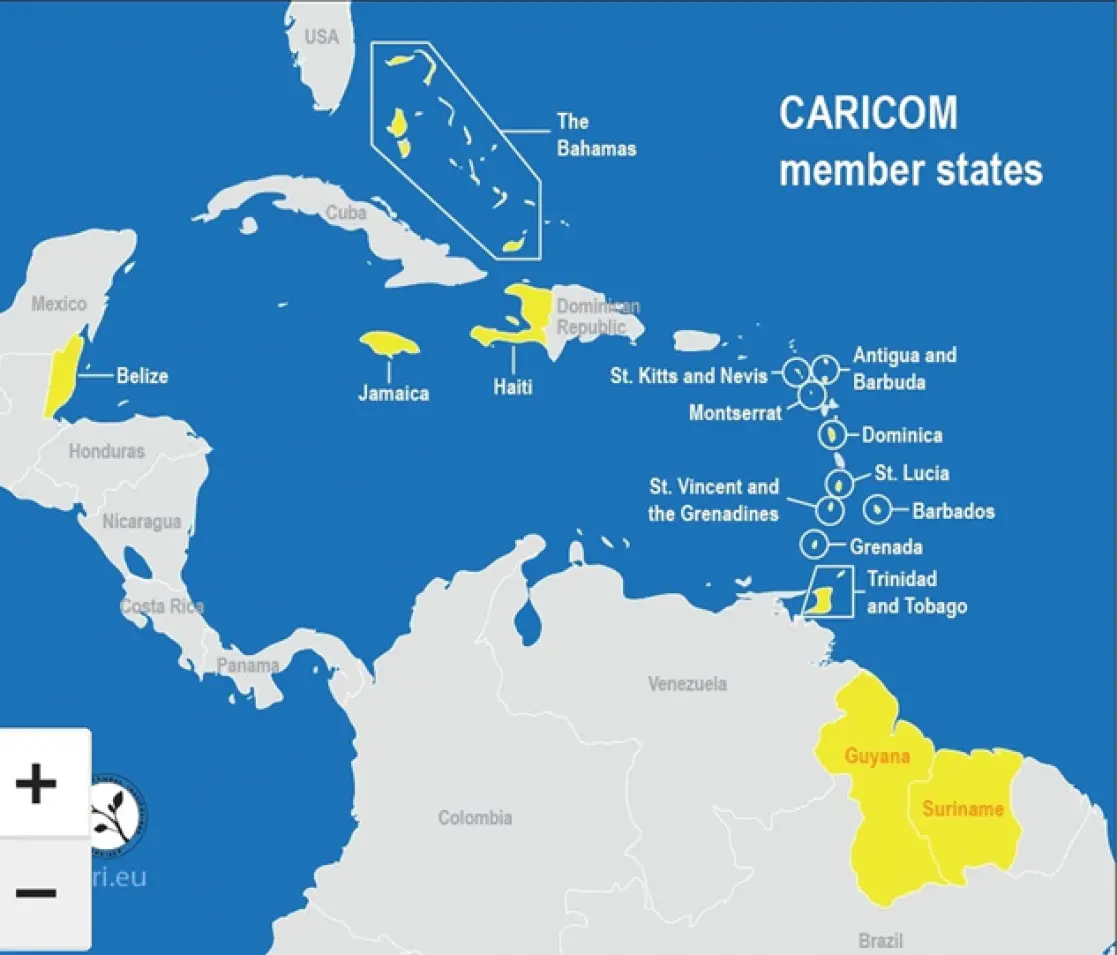Due to Venezuela’s Esequibo claims, CARICOM’s unity faces a challenge, highlighting internal splits and the difficulty of aligning support for Guyana with varied interests toward Caracas.
The organization actively promotes economic integration and cooperation among its member states in the Caribbean region.
Historically, CARICOM benefited from Venezuela’s energy initiatives like Petrocaribe.
However, differing energy needs and diplomatic views towards Venezuela reflect the varied interests and historical ties across member states.
Guyana’s booming oil industry boosts its economy and international stature, potentially altering CARICOM’s power balance and collective stance towards Venezuela.
CARICOM’s varied positions on Venezuela, influenced by alliances and diplomacy, complicate a unified Esequibo response.
CARICOM prioritizes national and collective interests against Venezuela, unlike their unified stance against Russia’s invasion of Ukraine.

Guyana aims to assert sovereignty and utilize its oil amid tensions with Venezuela.
CARICOM’s dilemma of aligning with Venezuela or uniting challenges Caribbean regionalism and Guyana’s role, underscoring the tension between national and regional interests.
Background
The dispute over Guyana’s Esequibo region and its impact on CARICOM cohesion is crucial for several reasons.
It underscores threats to regional stability due to Venezuela’s claims on this oil-rich area.
CARICOM faces the challenge of unifying diverse national interests to deter aggression.
Guyana’s growing oil industry might also alter the Caribbean’s economic dynamics, influencing collaborations and energy security.
CARICOM’s handling of the Guyana-Venezuela issue tests its diplomatic strength, affecting its global standing and ability to uphold sovereignty and territorial integrity.
This situation has direct security implications for Guyana and the broader region, making diplomacy essential.
It also tests the resilience of Caribbean regionalism and CARICOM’s support for member states’ sovereignty.
Guyana’s use of its oil resources amid territorial pressures is key to its development.
CARICOM’s stance could greatly influence Guyana’s future and the region’s economic landscape, highlighting the broader consequences for regional unity, economic growth, and global diplomacy.

